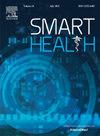Thermal vision: Pioneering non-invasive temperature tracking in congested spaces
Q2 Health Professions
引用次数: 0
Abstract
Non-invasive temperature monitoring of individuals plays a crucial role in identifying and isolating symptomatic individuals. Temperature monitoring becomes particularly vital in settings characterized by close human proximity, often referred to as dense settings. However, existing research on non-invasive temperature estimation using thermal cameras has predominantly focused on sparse settings. Unfortunately, the risk of disease transmission is significantly higher in dense settings like movie theaters or classrooms. Consequently, there is an urgent need to develop robust temperature estimation methods tailored explicitly for dense settings.
Our study proposes a non-invasive temperature estimation system that combines a thermal camera with an edge device. Our system employs YOLO models for face detection and utilizes a regression framework for temperature estimation. We evaluated the system on a diverse dataset collected in dense and sparse settings. Our proposed face detection model achieves an impressive mAP score of over 94 in both in-dataset and cross-dataset evaluations. Furthermore, the regression framework demonstrates remarkable performance with a mean square error of 0.18 °C and an impressive score of 0.96. Our experiments’ results highlight the developed system’s effectiveness, positioning it as a promising solution for continuous temperature monitoring in real-world applications. With this paper, we release our dataset and programming code publicly.
热视觉:在拥挤的空间开创性的非侵入性温度跟踪
个体无创体温监测在识别和隔离有症状个体中起着至关重要的作用。温度监测在人类接近的环境中变得尤为重要,通常被称为密集环境。然而,现有的热像仪非侵入式温度估计研究主要集中在稀疏设置上。不幸的是,在电影院或教室等人口密集的环境中,疾病传播的风险要高得多。因此,迫切需要开发针对密集环境量身定制的鲁棒温度估计方法。本研究提出一种结合热像仪与边缘装置的非侵入式温度估计系统。我们的系统采用YOLO模型进行人脸检测,并利用回归框架进行温度估计。我们在密集和稀疏设置中收集的不同数据集上评估了系统。我们提出的人脸检测模型在数据集内和跨数据集评估中都取得了令人印象深刻的超过94分的mAP分数。此外,回归框架表现出显著的性能,均方误差为0.18°C, R2得分为0.96。我们的实验结果突出了开发系统的有效性,将其定位为实际应用中连续温度监测的有前途的解决方案。在本文中,我们公开发布了我们的数据集和编程代码。
本文章由计算机程序翻译,如有差异,请以英文原文为准。
求助全文
约1分钟内获得全文
求助全文

 求助内容:
求助内容: 应助结果提醒方式:
应助结果提醒方式:


